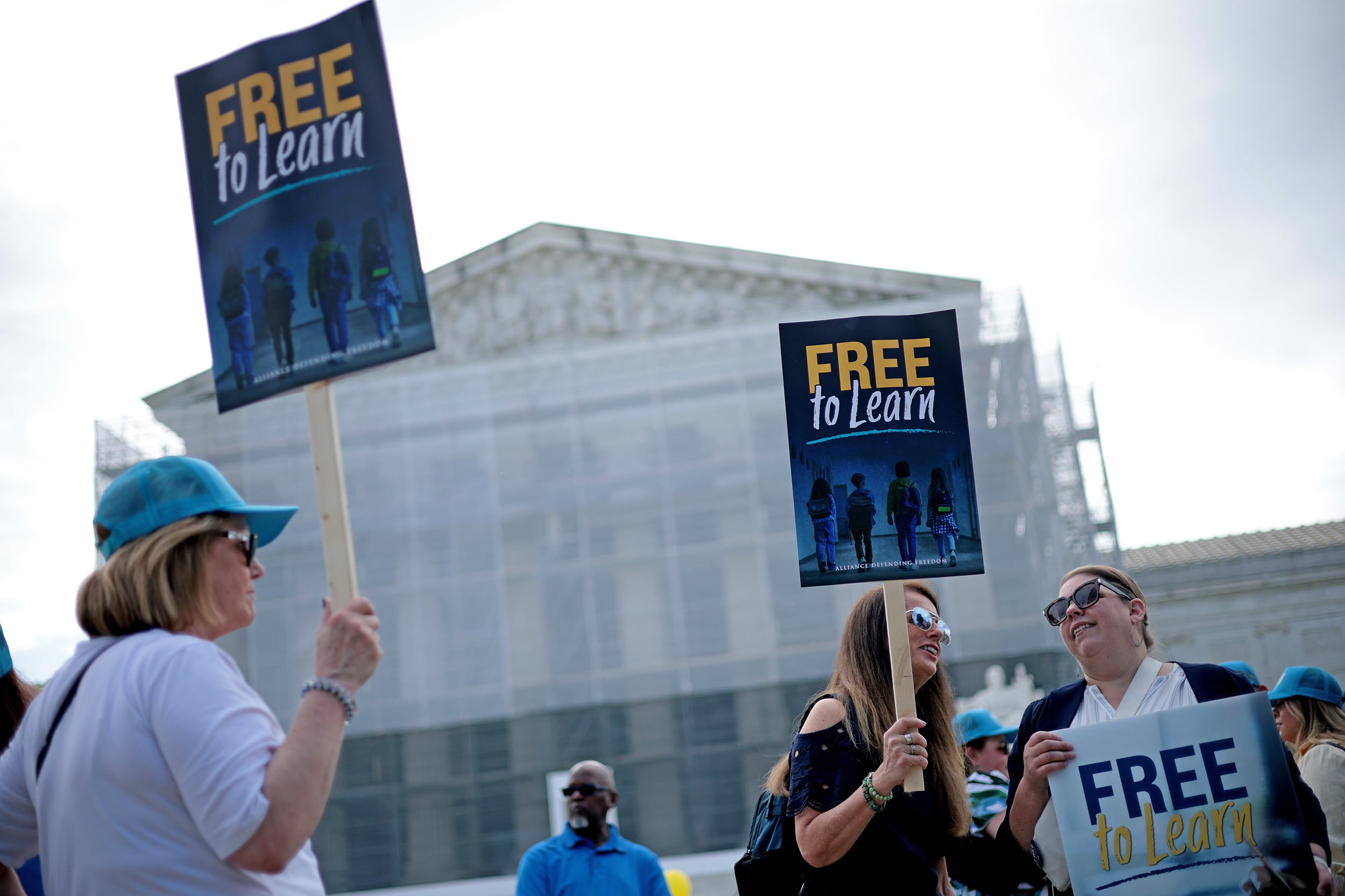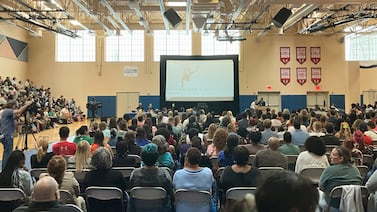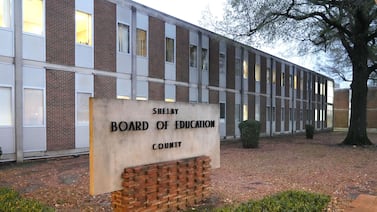Sign up for Chalkbeat Colorado’s free daily newsletter to get the latest reporting from us, plus curated news from other Colorado outlets, delivered to your inbox.
A prominent conservative law firm looking for a test case on whether public money can fund religious schools was the impetus for what’s been billed as Colorado’s “first public Christian school,” according to an email obtained by Chalkbeat.
In the June 4 email, Pueblo County School District 70 attorney Brad Miller wrote to the district’s school board and superintendent seeking permission for a public education cooperative he also represents to open a school with about 30 students within district boundaries.
Miller wrote that the cooperative would then work with Alliance Defending Freedom, an Arizona-based group involved in high-profile conservative legal causes, to test “the legalities around the issue of whether a public school may provide religious education.”
On June 24, the school board signed off on Riverstone Academy, allowing it to operate within the southern Colorado district’s boundaries for five years. In August, the school, which describes itself as offering “a Christian foundation” and Christian curriculum, opened quietly in an industrial zone in Pueblo County with about 30 elementary students.
Miller explained in that June email that Alliance Defending Freedom had hosted him when the Supreme Court heard oral arguments in a case about whether a Catholic charter school could open in Oklahoma.
“The case resulted in a 4-4 tie and so the question did not get answered,” Miller wrote. “ADF asked me if I could find a way for a parallel case to be initiated out of Colorado.”
In the email, Miller portrayed Pueblo 70’s role as minimal.
“We would anticipate that this will create a surge of public attention at a point in time,” he wrote. “But it would not be anything for which the district will have any participation.”
Neither Miller nor Alliance Defending Freedom responded to requests for comment for this story. Quin Friberg, Riverstone’s executive director, also didn’t respond.
Colorado has said it may withhold public funding
Friberg and Riverstone’s authorizer, Education reEnvisioned Board of Cooperative Education services, or ERBOCES, have said the school offers quality educational programming the community wanted. Ken Witt, executive director of ERBOCES, also argued that previous Supreme Court cases require Colorado to fund the school just like other public schools. That’s despite a state constitutional provision that bars public funding for religious schools.
The June 4 email suggests Miller knew and had informed Pueblo 70 board members that Riverstone would be testing the existing limits of church-state separation. It also suggests that the school’s opening is part of a larger legal strategy to further expand public funding for religious education in the aftermath of the Oklahoma Catholic charter school case.
Alliance Defending Freedom, which describes its mission as “grounded in the historic Christian tradition,” has been involved in more than a dozen successful Supreme Court cases. That includes the Trinity Lutheran case, the first in a series of decisions that expanded public funding for religious private schools. The law firm then applied that same reasoning to argue for public funding for religious charter schools.
After the Oklahoma Catholic charter case ended in a tie that blocked the school from opening, observers have expected another test case to emerge. A recently proposed Jewish charter school in Oklahoma would reignite the same legal arguments.
Riverstone Academy could also provide a test case.
In October, Colorado education officials warned ERBOCES, the school authorizer, that the state may withhold public funding from the school. If the state follows through and the school or ERBOCES sue, it could set up the legal test case that Miller’s email referenced.
When asked by Chalkbeat in October if Riverstone’s opening was meant to spark a legal test case, Witt said, “If a legal contest is required, we’ll cross that bridge when we come to it.”
Witt said by email on Monday he hadn’t seen Miller’s June email to Pueblo 70 officials, but that he has profound respect for Alliance Defending Freedom’s work.
“Education reEnvisioned would welcome their assistance were there related litigation, which there is not at this time,” he wrote.
Religion wasn’t discussed when school was approved
Most public officials involved in Riverstone’s opening didn’t respond to Chalkbeat’s request for comment about Miller’s email. Miller hung up quickly Monday when Chalkbeat reached him by phone. He did not respond to a follow-up email. Miller represents several Colorado school districts that have taken conservative positions on various culture war issues.
Lis Richard, the president of the ERBOCES board, didn’t respond to Chalkbeat messages. Neither did Pueblo 70 Superintendent Ronda Rein or school board members A.J. Wilson, John Christenson, Cathleen Culhane Howland, and Chris DeLuca.
Pueblo 70’s school board was the only elected body that voted on Riverstone. Although BOCES like Education reEnvisioned are allowed to open public schools under state law, they must get the consent of the school district where the school will be located if the district is not a member of the BOCES. Pueblo 70 is not a member of ERBOCES.
The five members of the ERBOCES board, who are appointed not elected, also voted to approve the school, according to board meeting minutes.
At two June school board meetings where the Pueblo 70 board considered letting Riverstone open within district boundaries, neither board members nor Rein mentioned that the school would be religious or that it was intended to prompt a lawsuit.
The school’s religious affiliation wasn’t widely known until Witt, the ERBOCES leader, publicly declared that Riverstone was Colorado’s “first public Christian school” in October.
Shortly after that announcement, Pueblo 70 school board president Anne Ochs told Chalkbeat she hadn’t known it would be a religious school when she voted to approve it. The next day, she called back and said she knew the school planned to use Christian curriculum, but added, “to me that doesn’t make it a religious school.”
When Miller sent his June 4 email to the Pueblo 70 school board, an email exchange obtained by Chalkbeat shows Ochs replied to Miller four minutes later. “Thank you for the information,” she wrote. “We will discuss putting this on the June 24th agenda.”
Ochs started a job with Education reEnvisioned BOCES in July, shortly after the board’s Riverstone vote. Contacted this week about Miller’s email and her response, Ochs said:
“My constituents voted me in, and they wanted me in. I don’t get paid for this position. This is an elected position. I make my votes depending on what I feel is right.”
Ann Schimke is a senior reporter at Chalkbeat covering early childhood issues and early literacy. Contact Ann at aschimke@chalkbeat.org.






